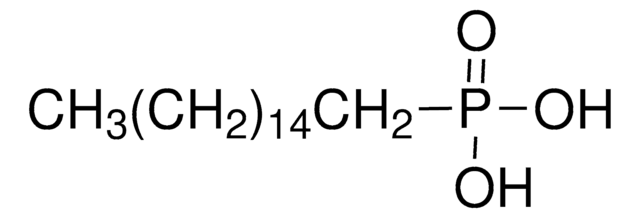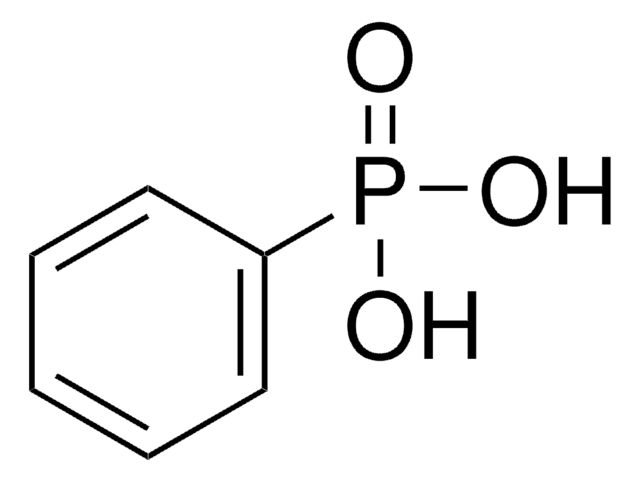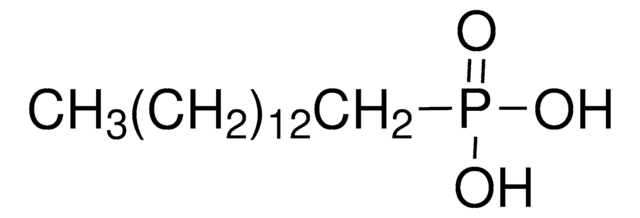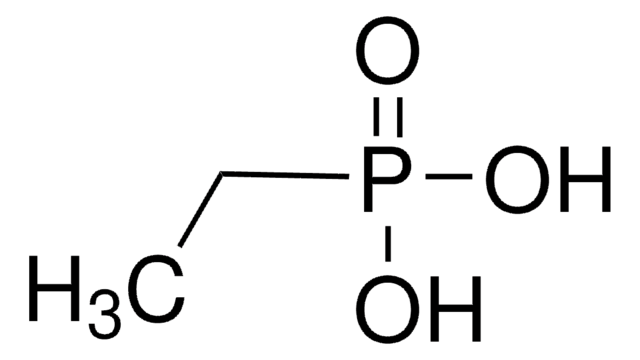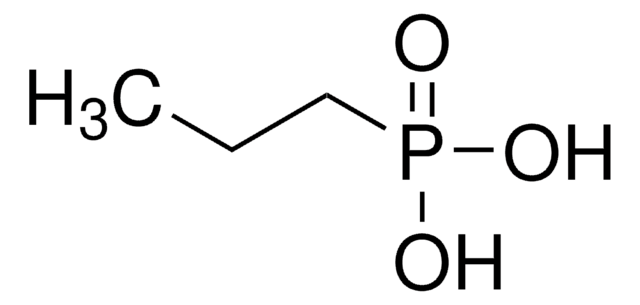735914
Octylphosphonic acid
97%
Synonym(e):
n-Octylphosphonic acid, OPA
About This Item
Empfohlene Produkte
Assay
97%
Form
solid
mp (Schmelzpunkt)
93-98 °C
SMILES String
CCCCCCCCP(O)(O)=O
InChI
1S/C8H19O3P/c1-2-3-4-5-6-7-8-12(9,10)11/h2-8H2,1H3,(H2,9,10,11)
InChIKey
NJGCRMAPOWGWMW-UHFFFAOYSA-N
Allgemeine Beschreibung
Anwendung
Signalwort
Danger
H-Sätze
Gefahreneinstufungen
Acute Tox. 4 Oral - Skin Corr. 1B - STOT RE 2 Oral
Zielorgane
Kidney,Bone
Lagerklassenschlüssel
8A - Combustible corrosive hazardous materials
WGK
WGK 1
Flammpunkt (°F)
Not applicable
Flammpunkt (°C)
Not applicable
Hier finden Sie alle aktuellen Versionen:
Besitzen Sie dieses Produkt bereits?
In der Dokumentenbibliothek finden Sie die Dokumentation zu den Produkten, die Sie kürzlich erworben haben.
Kunden haben sich ebenfalls angesehen
Artikel
There is widespread demand for thin, lightweight, and flexible electronic devices such as displays, sensors, actuators, and radio-frequency identification tags (RFIDs). Flexibility is necessary for scalability, portability, and mechanical robustness.
Self-assembled monolayers (SAMs) have attracted enormous interest for a wide variety of applications in micro- and nano-technology. In this article, we compare the benefits of three different classes of SAM systems (alkylthiolates on gold.
Unser Team von Wissenschaftlern verfügt über Erfahrung in allen Forschungsbereichen einschließlich Life Science, Materialwissenschaften, chemischer Synthese, Chromatographie, Analytik und vielen mehr..
Setzen Sie sich mit dem technischen Dienst in Verbindung.



